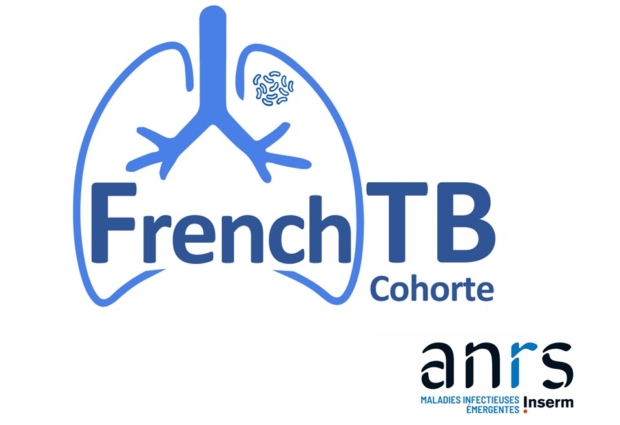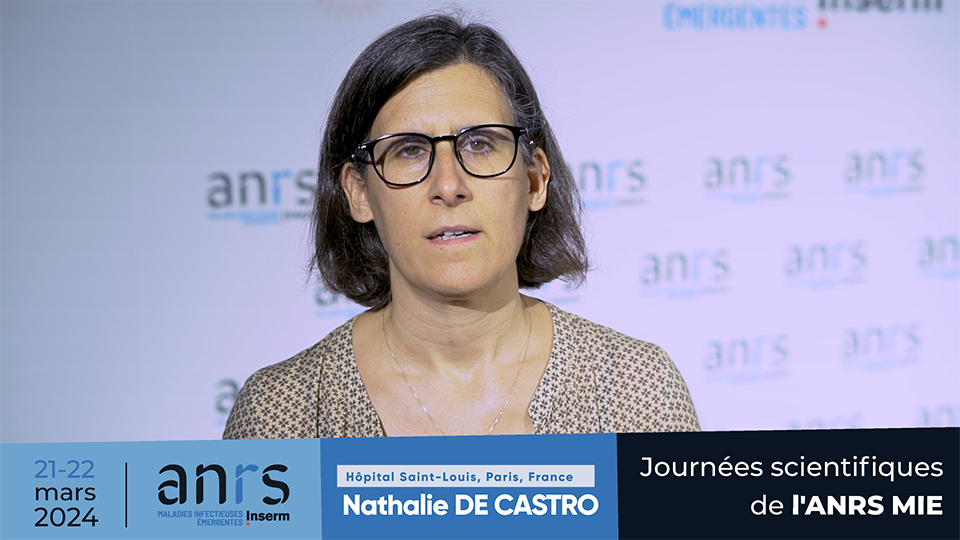
The French TB cohort
A pioneering study of tuberculosis in France
Last updated on 05 February 2026
The French TB cohort is the first large-scale French cohort to include people treated for tuberculosis.
Its aim is to describe socio-demographic, clinical and bacteriological characteristics, and associated co-morbidities, as well as to analyze their impact on the course of treatment, in order to identify risk factors for treatment failure.
In brief
Investigator / Co-investigator
Nathalie DE CASTRO, Claire ANDREJAK
Status
Starting at the end of the first semester 2026
Teams
Hôpital Saint Louis (APHP), CHU Amiens-Picardie et Université Picardie Jules Verne, INSERM UMR 1219, IRD EMR 271
Pathology
Tuberculosis
Sponsorship
Inserm / ANRS MIE
Expected number of participants
2000
Tuberculosis in France
Every year, around 4,500 cases of tuberculosis are reported in France, the majority of them pulmonary. The epidemiological surveillance data available from Santé publique France’s mandatory reporting system do not allow us to accurately describe the characteristics of tuberculosis cases, associated co-morbidities, clinical forms or severity. Outcomes of treatment are reported in only 65% of tuberculosis cases reported via mandatory reporting. What’s more, when reported, treatment outcome is potentially unfavorable in around 25% of cases (loss of sight, abandonment, failure, death), for a therapeutic success rate of around 80% (2), below the WHO target of at least 90%.
The reasons for the high rate of unfavorable outcomes are not fully understood, as epidemiological surveillance data are patchy and do not allow us to analyze the factors associated with treatment failure. In addition, international recommendations for the treatment of tuberculosis are evolving, with the advent of 2- or 4-month courses of treatment, shorter than the standard 6-month course that has been recommended for the past 40 years. In this context, it is important to gain a better understanding of the risk factors for treatment failure and relapse, so as to be able to tailor treatments to patients’ risk, and thus move towards personalized treatment.
The objectives of the French TB cohort
The overall aim of the French TB cohort is to describe the socio-demographic, clinical, radiological and bacteriological characteristics, as well as comorbidities, of people with tuberculosis disease diagnosed in France, and to assess their impact on treatment outcomes, and relapse rates up to 24 months after the start of anti-tuberculosis treatment.
A number of secondary objectives are planned, and will enable us to assess whether certain factors are associated with progression under treatment, such as immunosuppression, disease severity or duration of anti-tuberculosis treatment. Screening for post-tuberculosis pulmonary sequelae will be carried out at the end of treatment, and possible prognostic factors (biomarkers, bacterial-related factors) may be studied through sub-studies to be carried out ex-post.
A social science component will assess the impact of social determinants, health literacy and disease representations on follow-up quality and treatment outcomes.
The aim of the French TB cohort is to bring together all the tuberculosis research teams in France, whether in basic research, clinical research or the social sciences, and perhaps ultimately to be able to set up wider collaborations on the European continent.
Methodology of the French TB cohort
- The French TB cohort is a prospective, observational, non-interventional study that will include subjects aged 18 and over with bacteriologically confirmed or clinically diagnosed tuberculosis disease, for which treatment has been initiated.
- Follow-up and anti-tuberculosis treatment will be carried out in accordance with current recommendations in France. The primary endpoint is success on anti-tuberculosis treatment, defined as definite cure or probable cure at the end of treatment, or at the latest 12 months after inclusion (M12).
- Participants will provide socio-demographic, clinical, biological, radiological and bacteriological data at protocol-specified visits at 2 days, 1 and 2 weeks, 2 months, end of treatment, 12 and 24 months. For participants who give their consent, samples will be taken for the constitution of a biobank, following the scheduled visits. These will include blood, urine, respiratory and hair samples.
Expected benefits of the French TB cohort
There is currently no cohort of this scale in France that can document the factors associated with unfavorable treatment outcomes. Screening for pulmonary sequelae at the end of treatment, as well as the planned biological collection, are the original features of this project. This collection will enable studies to be carried out to better understand certain immunological mechanisms during the course of tuberculosis disease, in particular paradoxical aggravations under treatment. It will also be possible to assess the value of biomarkers predictive of response to treatment.
Research on tuberculosis in France has been organized for several years within the ANRS MIE Coordinated action Tuberculosis. The aim of FRENCH-TB is to provide a platform for coordinated observational research on tuberculosis in France, based on hospital sites handling the majority of cases in France. The cohort will have public health benefits in France, through better documentation of risk factors for unfavorable treatment outcomes and adaptation of practices to the challenges of managing these patients. It will also have a wider scientific and public health impact, notably through the creation of an effective clinical research network on tuberculosis in France, which could eventually be extended to European and international cooperation.

